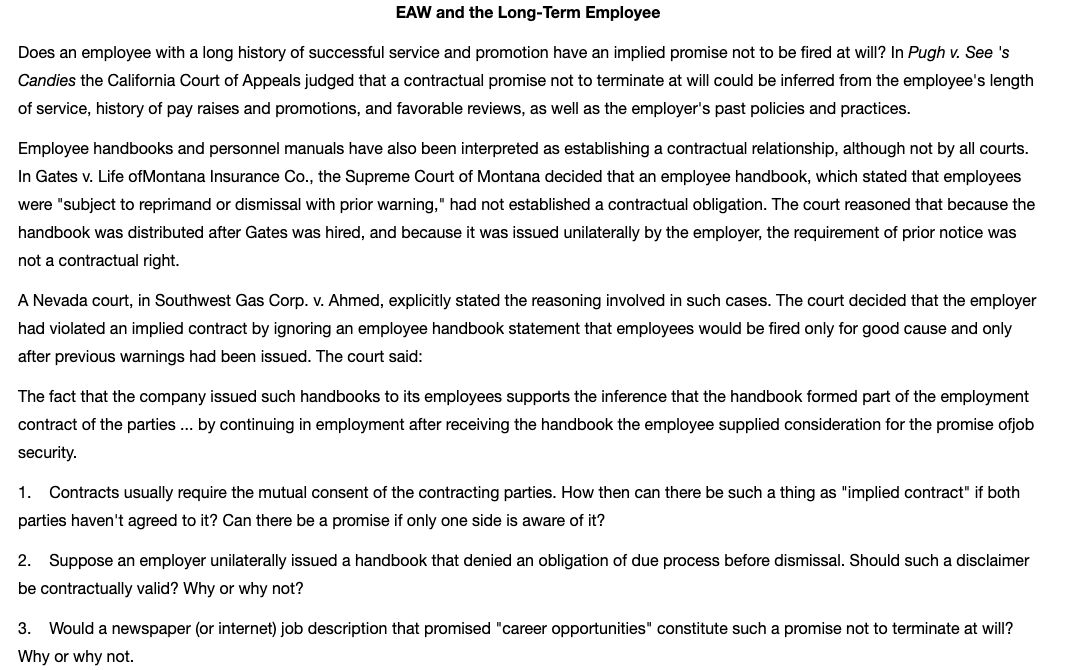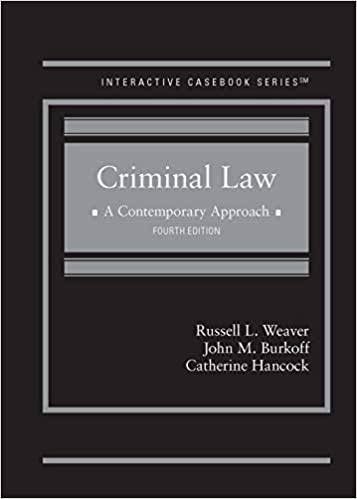Please read and answer the three questions.
EM\" and the Long-Term Employee Does an employee with a long history ot successful service and promotion have an implied promise not to be red at will? In Pugh v. See 's Candies the California Court of Appeals judged that a contractual promise not to terminate at will could be inferred from the employee's length of service, history ot pay raises and promotions. and favorable reviews, as well as the employer's past policies and practices. Employee handbooks and personnel manuals have also been interpreted as establishing a contractual relationship, although not by all courts. In Gates v. L'rfe otMontana Insurance Co, the Supreme Court of Montana decided that an employee handbook, which stated that employees were \"subject to reprimand or dismissal with prior warning," had not established a contractual obligation. The court reasoned that because the handbook was distributed after Gates was hired, and because it was issued unilaterally by the employer, the requirement of prior notice was not a contractual right. A Nevada court, in Southwest Gas Corp. v. Ahmed, explicitly stated the reasoning involved in such cases. The court decided that the employer had violated an implied contract by ignoring an employee handbook statement that employees would be red only for good cause and only after previous warnings had been issued. The court said: The fact that the company issued such handbooks to its employees supports the inference that the handbook formed part 01 the employment contract of the parties by continuing in employment after receiving the handbook the employee supplied consideration for the promise otjob security. 1. Contracts usually require the mutual consent of the contracting parties. How then can there be such a thing as " implied contract' if both parties haven't agreed to it? lClan there be a promise if only one side is aware of it? 2. Suppose an employer unilaterally issued a handbook that denied an obligation oi due process before dismissal. Should such a disclaimer be contractually valid? Why or why not? 3. Would a newspaper (or internet) job description that promised 'career opoortun'rties'l constitute such a promise not to terminate at will? Why or why not







